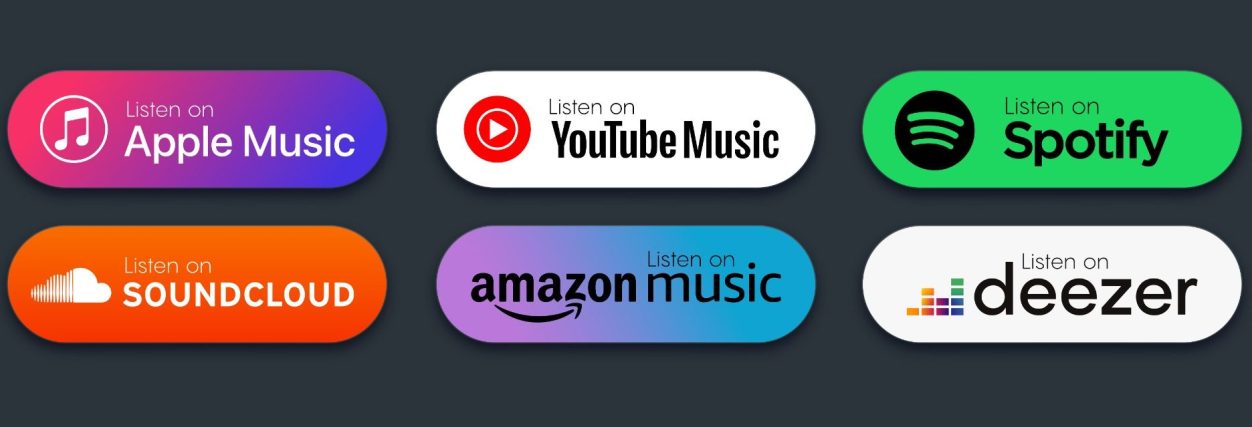
Understanding Streaming Fraud Manipulation
A Guide For Independent Artists
1. What Is Streaming Fraud?
Streaming fraud refers to the practice of artificially inflating music streaming numbers through methods like bots, click farms, or paid play schemes. Any strategy that creates a facade of popularity without reflecting genuine listener interest counts as streaming manipulation, including practices like having friends or fans continuously stream your music in a way that doesn’t reflect autonomous listenership. Platforms like Spotify, Apple Music, and Amazon Music are constantly working to detect and prevent these activities, as they harm both the platform and legitimate artists. Roughly 3-4% of global streams are considered fraudulent, diverting over $300 million in revenue from honest artists to fraudulent accounts.
2. The Consequences of Streaming Fraud for Artists
- Revenue Loss: Since streaming revenue is pooled, fraud siphons funds from genuine streams, impacting honest artists' earnings.
- Damaged Reputation: If industry players or DSPs discover fake streaming, they may blacklist the artist, damaging long-term career potential and blocking future collaborations.
- Increased Scrutiny and Penalties: Most DSPs use advanced detection algorithms to recognize artificial patterns. Once detected, platforms often respond by removing affected tracks or suspending the artist’s account, leading to a significant loss of progress and hard work.
Key Insight: Paying for fake streams or engaging with questionable promoters often causes more harm than good, as DSPs like Spotify and Apple Music have dedicated resources to identify and act against these tactics. The temporary vanity of inflated metrics will not only be fleeting but may be detrimental to the long-term success most artists seek.
3. What Major DSPs Are Doing to Combat Streaming Fraud
- Spotify: Spotify employs machine learning algorithms to detect fraud, using both automated and manual reviews. Its policies on artificial streaming and royalties have led to strict measures against manipulation. Recently, Spotify's AI-driven DJ tool, which selects songs based on user behavior, is helping enhance authentic discovery rather than artificially inflating stream counts.
- Apple Music: Apple focuses on playlist integrity and user verification to curb bot streams. Their advanced analytics detect unusual streaming patterns, making it harder for artificial plays to go unnoticed.
- Amazon Music: Amazon has invested in fraud prevention tools similar to those of Spotify and Apple, prioritizing account and playlist monitoring to ensure genuine engagement. They aim to discourage fake playlist placements and bot-driven listens that exploit the system.
4. What Major DSPs Are Not Doing to Combat Streaming Fraud
- Targeting illegal playlist account holders or illegal marketing companies that sell to independent artists
- Using context-aware detection models
- Conducting manual reviews of flagged content by automated tools
- Providing real-time, transparent data sharing with distributors and the artists they represent
5. Five Steps for Avoiding Streaming Fraud Accusations
- Work with a Trusted Distributor: Choose a distributor with a track record of protecting artists' interests while staying compliant with all DSP regulations. Some major distributors have anti-fraud policies and experience with DSP issues but often fail to advocate for artists in cases of fraud accusations. A credible distributor can act as an advocate for artists if irregular activity appears, helping prevent penalties and improve DSP relations.
- Avoid “Guaranteed Streams” Offers: Avoid marketing companies whose only requirement for representing your music is a fee. Services that promise any set amount of streams for a fee are likely illegal and may use unethical methods to garner streams. While tempting, using these services can lead to account flags, song removal, or even a total account ban on DSPs like Spotify. Reliable services focus on genuine promotional activity that fosters authentic user interest and fan building.
- Monitor Streaming Analytics Frequently: Regularly checking your analytics (available in Spotify for Artists, Apple Music for Artists, etc.) allows you to detect unusual activity. If you notice a sudden spike in streams from unexpected locations, report it. Analytics platforms make it easier to spot issues early on and can provide evidence to counter streaming fraud claims if they arise.
- Report Suspected Activity Immediately: If you notice unusual trends, like a sudden influx of streams from a single playlist or country, alert your distributor or DSP contact. Prompt reporting can help address potential issues before they escalate, as DSPs value transparency.
- Focus on Authentic Fan Engagement over Stream Counts: The best strategy for long-term success is building a loyal, genuine following. Engage with fans through live performances, social media, playlist pitching, and collaborations with other artists. Authentic growth may take longer, but it builds a foundation for fan loyalty and sustainable career growth.
Closing Thoughts
Streaming fraud is not a viable path to success. While it may seem like a shortcut, it carries substantial risks that can impede rather than help your music career. By partnering with trustworthy distributors, steering clear of quick-fix streaming services, and focusing on real fan engagement, independent artists can avoid the fraud trap. The journey as an artist may take time, but a foundation built on genuine connections leads to sustainable and meaningful success.
Today’s music climate, dominated by streaming and shared revenue pool models, requires artists to be diligent about placing their music in the right channels. Despite the platforms' claims of supporting honest artists, some criteria they use can unintentionally harm the very artists they aim to protect.
As enforcement of streaming fraud is still in its early stages, artists should plan carefully and take a proactive approach to marketing their music. Protecting your work and reputation will ensure that your music reaches an authentic audience that values it.
We need your consent to load the translations
We use a third-party service to translate the website content that may collect data about your activity. Please review the details in the privacy policy and accept the service to view the translations.

